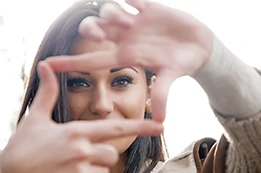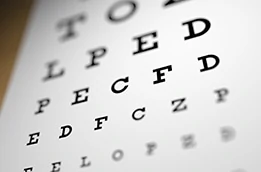How Long is LASIK Recovery + 7 More LASIK Recovery Questions

If you’re considering LASIK or another laser vision correction procedure, you probably have a lot of questions about the procedure, including what to expect after having laser eye surgery. RSC has compiled a list of the most searched and most frequently asked questions online about LASIK eye surgery recovery and had our team of respected eye surgeons providing expert answers.
Q: How long is LASIK Recovery?
The majority of patients have a short LASIK recovery period. The surgery is quick (less than 10 minutes for each eye), minimally invasive, and relatively painless. Your doctor will use numbing drops to anesthetize your eyes before and during the procedure, so you won’t feel any pain, but you may feel a little pressure. Many see better immediately, albeit a bit blurry from the drops and medications administered before and during the procedure. Many patients immediately following the procedure state they see as if they are swimming underwater. The day after surgery, you will have a post-op exam and your doctor will check your eyes are healing properly. Most patients can drive themselves to the first postoperative visit.
Most patients resume most normal activities within a day or two. However, while your vision may be clear, the healing period takes longer, typically from three to six months.
Over the course of this healing period, you should expect your vision to gradually improve.
Just like any surgery, it is normal to have some symptoms during the healing period after LASIK. This recovery period is to be expected and your eyes may feel a little dry, light-sensitive, or irritated while they heal. This typically lasts just a few days, but those with higher or more severe myopia (a high nearsighted prescription) may take longer to heal. It is important to keep your eye doctor informed about your symptoms during your post-LASIK visits.
Q: Can I drive after LASIK?
Immediately following your LASIK procedure, you should plan to have a friend or family member drive you home. In addition to the medication you were given before surgery, most people also experience sensitivity to light, tender eyes, and blurry vision after surgery, making it unsafe for you to drive home from having LASIK. It is important to keep your eyes closed for the first several hours following your LASIK. After your first post-op visit with your eye doctor, you should be cleared to drive within a day or two. Some patients experience night vision issues, such as halos, glare, or starbursts, and may need to wait until their eyes heal completely before driving after dusk.
Q: Can I rub my eyes during LASIK recovery?
Your eye doctor will tell you that you should never rub your eyes. Rubbing your eyes can damage them especially if you rub them too hard or too often. After laser vision correction surgery, don’t rub or touch your eyes for a week after surgery as they will be sensitive. Also, your eyes will still be healing, and don’t want to risk getting an eye infection.
Q: Can I shower after LASIK?
You should be able to shower or have a bath the day after your surgery. Be sure to keep water, soap, shampoo, and any other chemicals out of your eyes during the LASIK recovery time.
Q: Can I watch TV after LASIK?
It’s best to avoid all screens such as TVs, smartphones, tablets, and computers and any activities like reading to avoid straining your eyes for about 12 hours or until the next day after surgery. Keep the lights in your home low as well. But, after that, feel free to enjoy your favorite TV program.
Q: Can I go outside after LASIK?
Yes, you can go outside after having surgery but protect your eyes by wearing sunglasses with 100 percent UV protection for the first few weeks of your LASIK recovery. (Your eye doctor will tell you that it’s always good to wear proper sunglasses to protect your eyes.
Q: How long will my eyes hurt after LASIK?
Your eyes should not hurt much or for long after having LASIK, although it can vary from patient to patient. After the topical anesthesia wears off, you’ll likely have some mild discomfort – an itching or burning sensation is normal – that lasts about five hours. Your doctor will give you instructions about what and how much medication you can take to relieve any pain.
Q: What are the top LASIK recovery tips?
- Follow the aftercare instructions your surgeon gives you, including scheduling your follow-up exams, so your eyes heal properly. Take any medications and eye drops your doctor prescribes as directed.
- When you get home after surgery, rest with your eyes closed in a quiet environment for several hours and limit your activities.
- Wear a protective plastic shield over your eyes at night for the first week or so to prevent injury.
- When you return to using your computer and watching screens, make an effort to blink more often so you keep your eyes lubricated.
- Wait for a week after surgery before you apply any creams or makeup around your eyes and be extra careful when removing makeup.
- Usually, you can start exercising, playing contact sports and swimming after a week. Wear eye protection such as goggles if there’s a chance you may injure your eyes.
- Attend all follow-up appointments – usually the day after surgery, then after three and six months – with your doctor to make sure your eyes are healing satisfactorily. Keep your doctor updated on how you are doing, symptoms you may be experiencing, and ask any questions you have about your vision. If at any time you experience pain in your eyes, contact your doctor immediately.
Once your recovery is complete, continue to look after your vision by scheduling annual eye exams with your doctor. LASIK doesn’t prevent your eyes from changing as you get older, so staying on top of your eye health is important. You can read more here about what to expect your first year after LASIK surgery.




